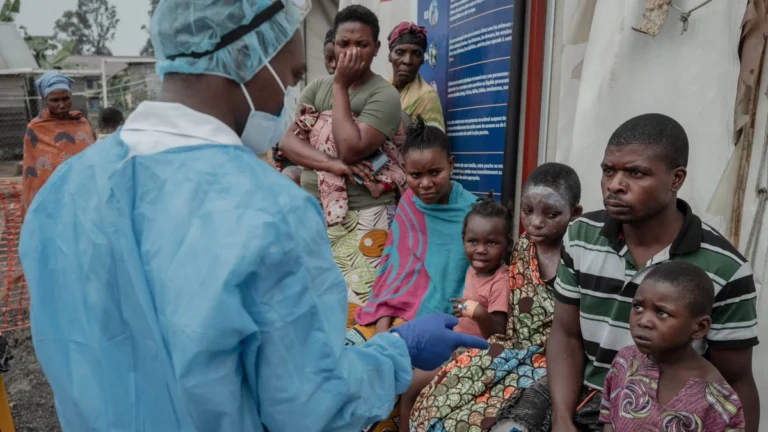Mpox Cases Decline in Africa, But Vaccine Shortages Threaten Progress

Photo: EFE
July 3, 2025 Hour: 2:57 pm
The African continent has seen a notable decline in mpox cases over the past week, according to the Africa Centres for Disease Control and Prevention (Africa CDC). However, the agency warns that severe vaccine shortages and lack of funding could undermine containment efforts.
Since January 2024, Africa has recorded 153,439 suspected cases and 44,913 confirmed infections of mpox (formerly known as monkeypox), along with 1,840 suspected deaths and 210 confirmed fatalities across 26 countries.
In a virtual press briefing, Yap Boum, Africa CDC’s deputy incident manager, reported a 10% drop in suspected cases and a 26% decrease in confirmed cases compared to the previous week. “Mortality remains below 0.4%, well under our 1% threshold, which is encouraging,” Boum said.
During the last week of June, 3,077 new cases were reported (624 confirmed), down from 3,541 cases (839 confirmed) the week before.
The Democratic Republic of the Congo (DRC) remains the epicenter, with 114,222 suspected cases, 27,940 confirmed, and 118 confirmed deaths. Alongside Sierra Leone, Burundi, and Uganda, these four countries account for 96.3% of all confirmed cases since the continental emergency was declared in August 2024.
Despite the downward trend, Boum emphasized that only 11 countries have received vaccines, and just seven have launched immunization campaigns due to high operational costs. So far, fewer than 700,000 people have been vaccinated.
“The real challenge is funding,” Boum warned. “Africa CDC has no resources to purchase or distribute additional doses. Globally, there is no available financing. If another country needed vaccines today, we couldn’t provide a single dose.”
The African Union declared mpox a continental public health emergency in August 2024, followed by the World Health Organization’s global alert, which remains in effect as of June 2025.
Mpox is a viral infection that causes painful rashes, swollen lymph nodes, fever, muscle aches, and fatigue. The current outbreak has been driven by clade I and Ib variants, with community transmission confirmed in over a dozen African countries.
Author: OSG
Source: EFE-Africanews






